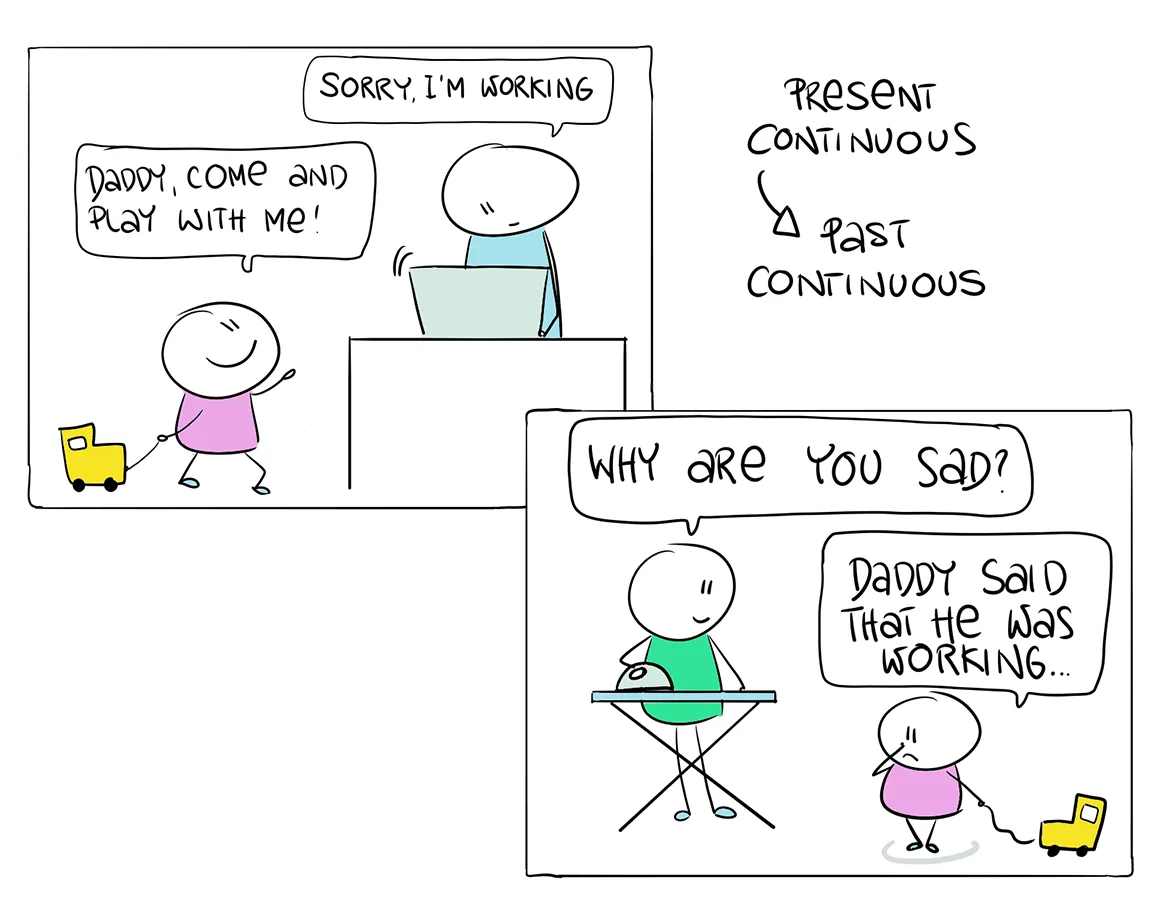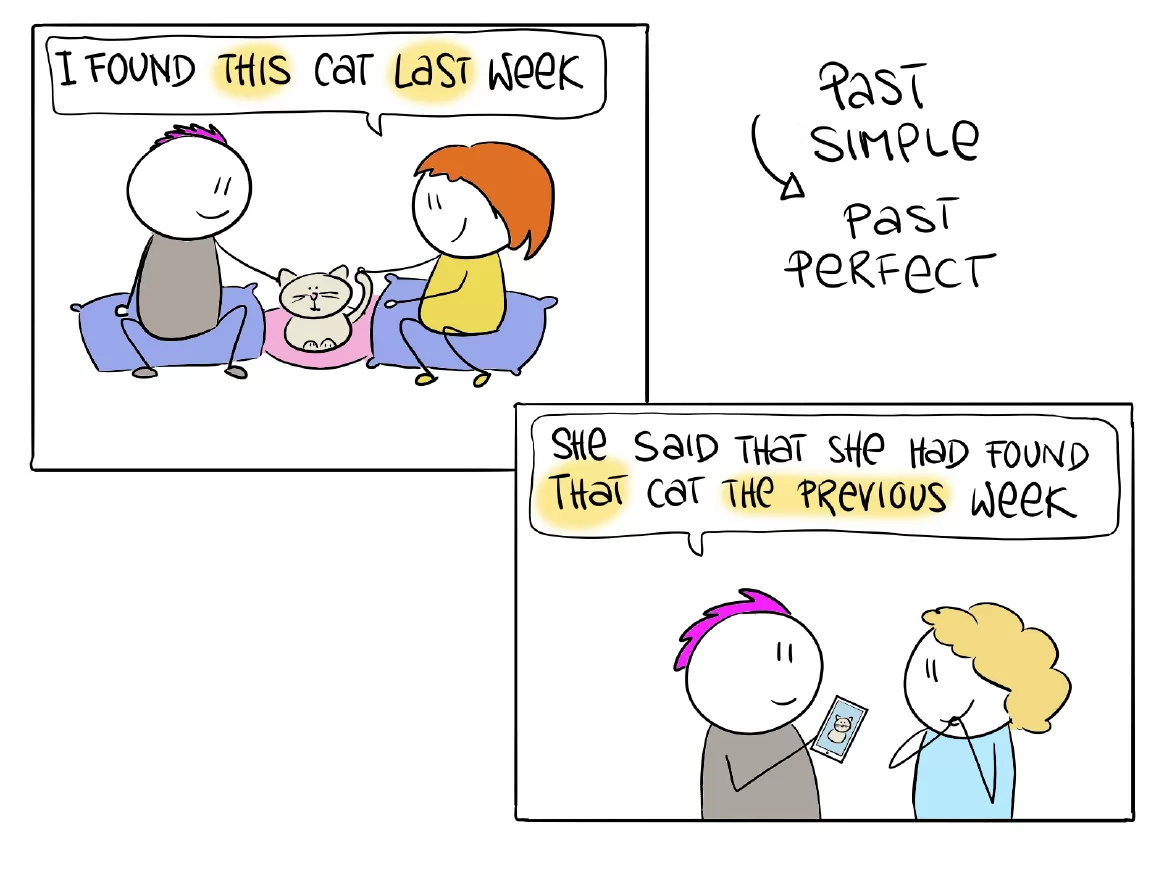Mowa zależna (reported speech)
Mowy zależnej używamy do relacjonowania wypowiedzi innych osób.
Użycie reported speech powoduje zmianę:
- czasów gramatycznych (zawsze idziemy jeden czas wstecz)
- zaimków osobowych (I, she, you)
- przymiotników dzierżawczych (my, her, your)
- przysłówków czasu i miejsca (this weekend, here, today)
Przykłady zdań:
Mowa zależna: They said (that) I was an excellent doctor!
Mowa niezależna: We've been here before.
Mowa zależna: They said (that) they had been there before.

Zmiany czasów w mowie zależnej – tzw. następstwo czasów
Pamiętaj, aby podczas relacjonowania wypowiedzi iść jeden czas wstecz.
| present simple You work very hard. |
past simple She said that I worked very hard. |
| present continuous You are doing a great job! |
past continuous They said that I was doing a great job! |
| present perfect We have never seen this film. |
past perfect They said (that) they had never seen that film. |
| past simple I was here yesterday. |
past perfect He said (that) he had been there the day before. |
| will/won't I will help you! |
would/wouldn't He said that he would help me. |
| can/can't We can't be here today. |
could/couldn't They said (that) they couldn't be there that day. |
| present perfect continuous We have been painting this room for 5 hours. |
past perfect continuous They said (that) they had been painting that room for 5 hours. |
| past continuous I was dancing the whole night. |
past perfect continuous She said that she had been dancing the whole night. |
| past perfect I had never experienced this before. |
past perfect She said (that) she had never experienced that before. |
| shall I shall ask my parents. |
should He said (that) he should ask his parents. |
| may We may be in Warsaw next week. |
might They said (that) they might be in Warsaw the following week. |
Zmiany wyrażeń w mowie zależnej
W przekształcaniu mowy bezpośredniej na mowę zależną, nie można zapomnieć o zmianie poniższych wyrażeń. Naucz się ich na pamięć
| now → | then |
| today → | that day |
| tonight → | that night |
| tomorrow → | the next day/the following day |
| yesterday → | the day before/the previous day |
| last/next → | the last/the next |
| last night → | the night before/the previous night |
| next Sunday → | the following Sunday |
| here → | there |
| this → | that |
| these → | those |
| the day before yesterday → | two days before |
| ago → | before |

SAY vs. TELL
Zapamiętaj kiedy stosujemy czasownik say, a kiedy tell.
SAY (something) - powiedzieć coś (że coś)
ex. Sonia said that you were ill. Sonia powiedziała, że jesteś chory.
TELL (somebody) - powiedzieć komuś
ex. Sonia told me that you were ill. Sonia powiedziała mi, że jesteś chory.
Pomijanie THAT
Kiedy "that" znaczy "że", można to słówko pominąć i zdanie nie zmieni znaczenia (dlatego "that" w zdaniach umieściliśmy w nawiasie).
She said that she hated me. = She said she hated me.
TELL vs. ASK – Kazał mi..., Poprosił mnie...
Prośba: Can you help me, please?
Mowa zależna: He asked me to help him.
Rozkaz: Shut up!!
Mowa zależna: She told me to shut up.
Prośba: Please, don't tell anybody.
Mowa zależna: Ana asked me not to tell anybody.
Rozkaz: Don't run in the corridor.
Mowa zależna: They told us not to run in the corridor.



